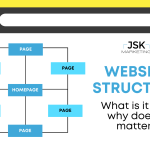
Asking questions is key to new paths, new perspectives, and new opportunities. Asking the “What if” questions is important, powerful, and essential to new solutions and preparedness. Being prepared is critical and failing to anticipate can put you at a competitive disadvantage. Investing in the process of solid strategic planning work can help you be best prepared for the future. Every company should find time to explore and engage in the “What if” method. This method is a decision-making method that helps you make the smartest decision and think about what effects it will have before it actually happens. This method can help your company consider potential positive or negative possibilities. This process also helps your company to be increasingly aware of risk exposure so that they can become more proactive in avoiding risks.
Why Should I Use the “What if” Method?
Implementing the “What if” Method helps your team to test different scenarios and hypotheses used in planning. It helps them to think outside of the box and learn from each other. They can share different perspectives on the company and what they think is the best approach to being prepared – expecting the unexpected. It is important to take advantage of this method because it will bring up necessary conversations about being prepared for the future and where the company is headed.
How to use the “What if” Method
First, you will need to assemble a team to come up with your “What if” questions. Once you have your team, everyone begins writing their scenario questions. These should involve quality, realistic ideas. Finally, everyone should come together to discuss the questions that were written. During this time, you and your team should talk through the advantages and disadvantages, risk assessment, and probable outcomes of each question. Crafting and prioritizing the best “what if” questions for your company depends on what you are looking to be better in. Some things to consider when doing so are… your company’s past successes and how to continue it, your company’s past failures and how you overcame them, and customer engagement and support.
Here are fifteen sample ‘What if” questions to help you get started.
- What if our competitors outperform us?
- What if a new form of technology comes out and pushes us behind?
- What if we miss the deadline or drop the ball on a project?
- What if our client’s budgets get cut?
- What if a social channel stops performing as well?
- What if a key team member(s) leaves?
- What if consumer prices increase?
- What if consumer prices decrease?
- What if your client decides to end their contract with you?
- What if a campaign outperforms expectations?
- What if there are too many inbound requests and not enough employee support?
- What if a client asks for something that you do not have experience in?
- What if your client is nonresponsive?
- What if a potential client is interested in you, but you do not have experience in their industry?
- What if clear communication guidelines are not set and a client contacts you after hours/during the holidays?
“What if’ questions open a variety of views on future and existing challenges. They allow you to look at these potential challenges from a new angle. It is important to take the time to be thoughtful when creating and developing your strategic plan. Tangible and measurable answers from your “What if” questions lead to long-term desired business outcomes. Let’s chat about creating the strongest strategy that will provide you with the opportunity to improve your business.




